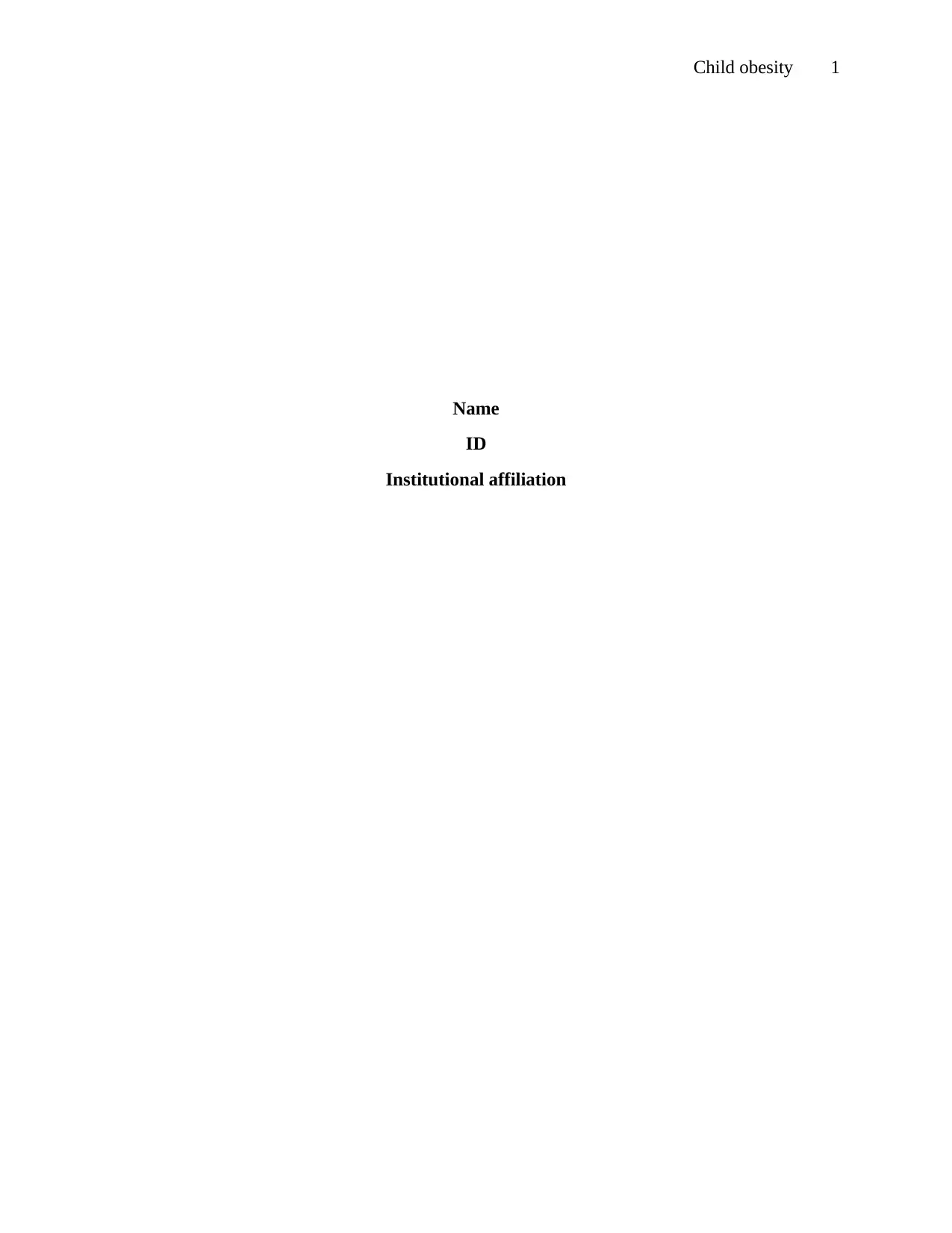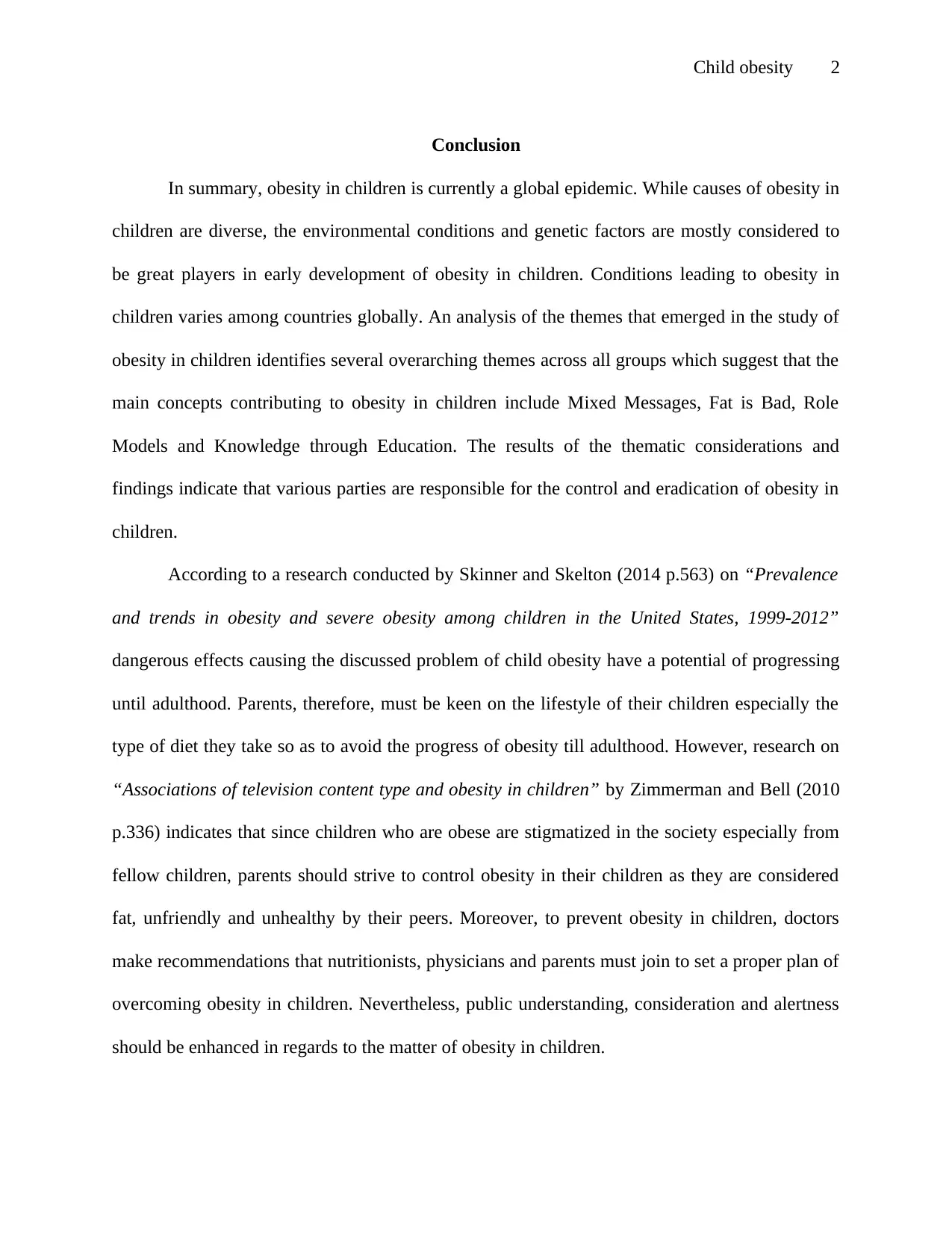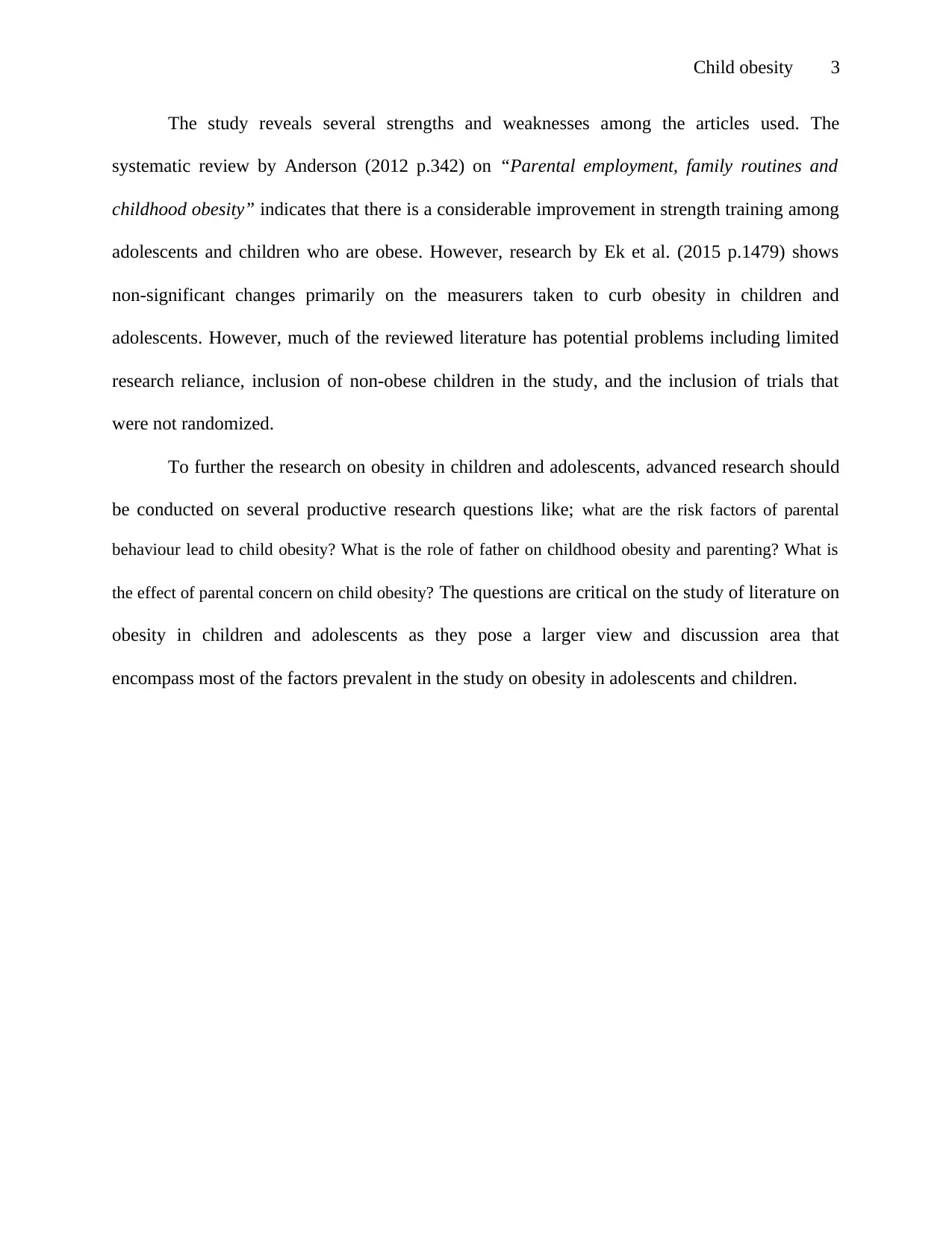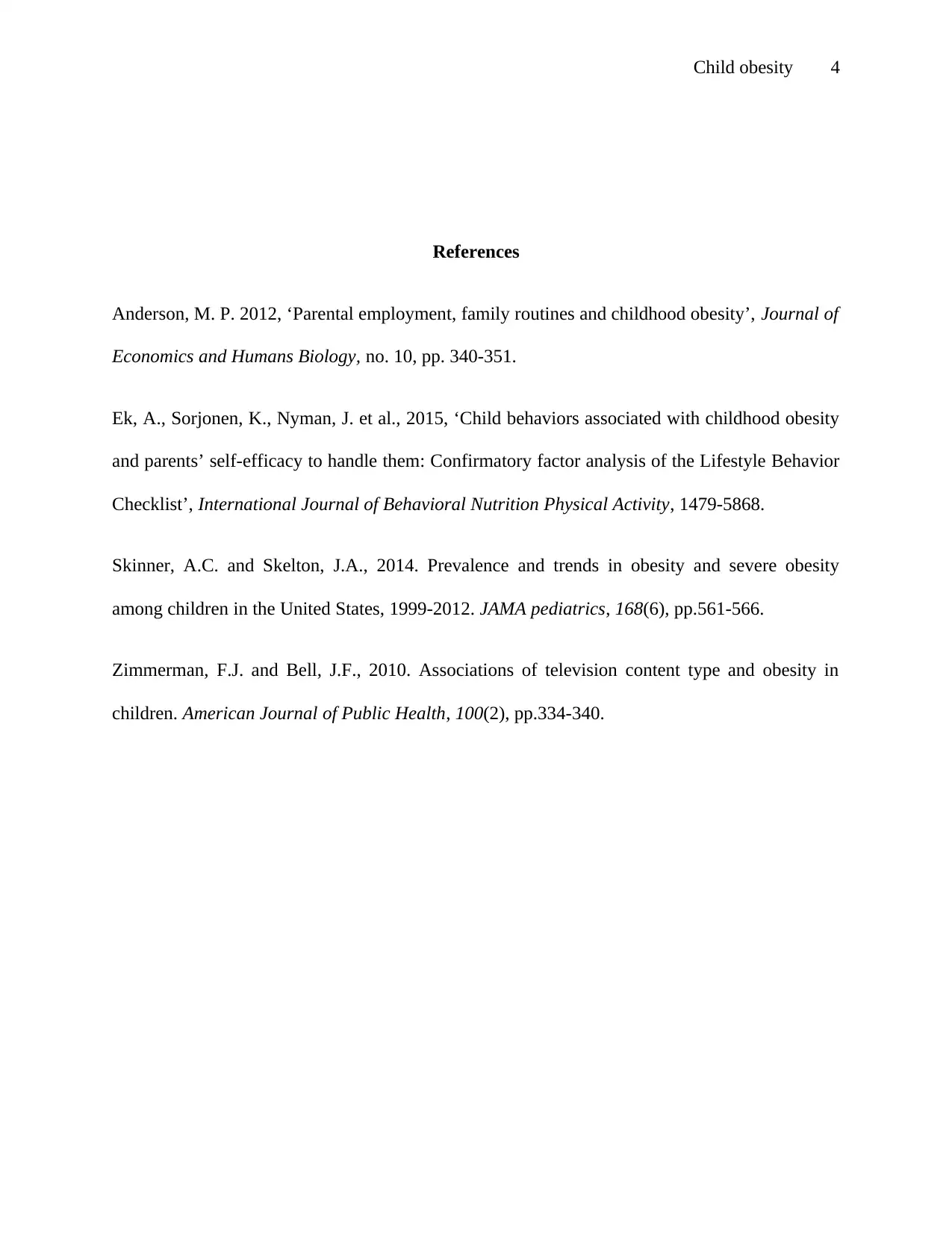Child Obesity: A Comprehensive Literature Review on Global Trends
VerifiedAdded on 2023/01/19
|4
|699
|82
Literature Review
AI Summary
This literature review examines the global epidemic of child obesity, emphasizing its causes, effects, and potential solutions. The review highlights environmental and genetic factors as key contributors, with varying conditions across countries. It identifies overarching themes like Mixed Messages, Fat is Bad, Role Models, and Knowledge through Education. The study analyzes articles, including those by Skinner and Skelton (2014) and Zimmerman and Bell (2010), revealing strengths and weaknesses in existing research. It also points out the need for further investigation into parental behavior, the role of fathers, and parental concern in relation to childhood obesity. The review underscores the importance of parental awareness, and the need for collaboration among nutritionists, physicians, and parents in combating this growing health crisis. The review concludes by suggesting further research questions and highlights the need for enhanced public understanding and alertness regarding child obesity.
1 out of 4











![[object Object]](/_next/static/media/star-bottom.7253800d.svg)